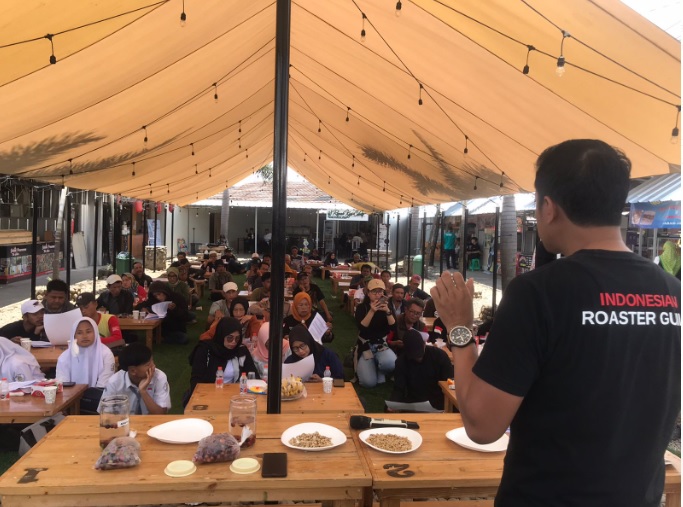JAKARTA – March 11 is officially recognized as Indonesia’s National Coffee Day, a date chosen to commemorate the inauguration of the Indonesian Coffee Council (Dekopi) leadership for the 2018–2022 period by the Minister of Agriculture, Amran Sulaiman.
Dekopi proposed this date to signify the revival of Indonesia’s coffee industry. Despite coffee’s status as one of the country’s key export commodities contributing significant revenue, the sector has lagged in organization compared to other commodities like palm oil.
"In celebration of National Coffee Day and to strengthen partnerships between PT Jaminan Kredit Indonesia (Jamkrindo) and local communities, we held a coffee training session in collaboration with PMO Kopi Nusantara and Salarea Foundation," said Jamkrindo Corporate Secretary Dody Novarianto during the event in Cibatu, Garut, on Tuesday, March 7.
Dody emphasized that the coffee training is part of Jamkrindo’s commitment as a state-owned enterprise to support rural economic capacity sustainably. "This initiative is part of our partnership program to strengthen the economic resilience of rural communities," he explained.
For the past three years, Jamkrindo and the Salarea Foundation have worked together to empower coffee farmers in Cibatu, supporting them across the entire coffee production process—from planting to distribution. Initiatives include training sessions, coffee seed donations, demonstration plots, seedling houses, processing equipment, and providing financial assistance for coffee businesses.
Beyond Coffee: Expanding Community Impact
In addition to coffee-related activities, Jamkrindo has been active in environmental improvement projects, such as planting trees, establishing three waste management centers in Garut, and providing training in waste processing and maggot farming. For small and medium enterprises (SMEs), Jamkrindo facilitates halal product certification, financial loans, and business development programs.
Dody expressed optimism about the coffee sector’s potential: "Through these partnerships, we hope to inspire Cibatu residents, particularly farmers, to expand coffee cultivation and elevate Cibatu coffee’s productivity and quality, making it competitive in both domestic and international markets."
Focus on Post-Harvest Processing
The training featured expert speakers from organizations like Sunda Hejo (Klasik Beans), the Sustainable Coffee Platform of Indonesia (SCOPI), and Pawon Kopi Salarea. Fifty participants, including coffee farmers, local youth groups, students, and village representatives, attended sessions on post-harvest coffee processing, sorting techniques, storage management, and inventory management.
Dadan M. Ramdan, Chair of the Salarea Foundation, highlighted the importance of this partnership. "In Cibatu, three farmer groups across three villages form the largest coffee production center in Northern Garut," he said.
Dadan also pointed out that Indonesia’s coffee stands out globally for its unique flavor profiles. "Countries like Brazil and Vietnam may produce more coffee, but Indonesian coffee’s taste and character remain unparalleled," he noted.
With Indonesia’s tropical climate and fertile mountainous regions, the country boasts ideal conditions for coffee cultivation. For communities like Cibatu, Dadan stressed, there’s much to be proud of in contributing to Indonesia’s exceptional coffee legacy.



